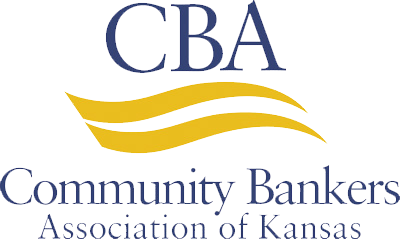Shoptalk 2021
Here’s another conversation with our consummate community banker.
“This is Jim Reber.”
“Hi Jim, this is Charlie Brown with Community Trust Bank. Do you have a minute?”
“I sure do, Charlie. I don’t think I’ve heard from you since the summer of 2020. How are things at the community bank?”
“I think things are going pretty well. But you know what, as we’re getting pretty close to year-end, I believe we need to take a good look at our investment portfolio, and that’s why I’m calling. As you may have guessed, we need a refresher about the dos and don’ts for year-end strategies.”
“Charlie, this conversation is taking place right now between hundreds of community bankers and their brokers, so your timing is pretty good, but we should get on this project immediately. Liquidity, in the sense of how efficiently your
bonds can be sold, starts to dwindle as we get to mid-December, even for generic bonds like mortgage-backed securities (MBS). And municipal bonds are a wholly different story.”
“Well, Jim, let me start by asking about taking gains versus taking losses. I know most tax accountants preach that we should sell bonds at a loss instead of gains because that speeds up the income tax liability. Am I saying that right?”
“Yes, and I hasten to add that if you sell bonds you own at a gain, you’re almost certainly going to see your overall portfolio yield go down again. And if there’s a theme that I’ve heard this year from your peers, it’s that the returns on their bonds are dreadful. So, you’ll be aggravating that situation.”
“Most community bankers I know don’t like to admit defeat. Are you suggesting I’m supposed to like selling my dogs and taking losses?”
“Charlie, since you brought up the metaphor, let me remind you that the bond portfolio is just a complement to the rest of the balance sheet. It is the proverbial tail of the dog. And I’d guess that your annual earnings number is looking pretty good, right?”
“Yes, but that’s because of some events aren’t likely to repeat themselves next year. I mean, we booked a lot of fee income from the Paycheck Protection Program (PPP), and our mortgage department has been ahead of budget all year too. I don’t see how we’re going to do better next year than we’ve done in 2021.”
“Which is all the more reason to push your earnings out to future periods. And that means taking losses in 2021, buying some replacement bonds that have higher yields, and liking your new-and-improved bond portfolio.”
“But Jim, why would I do that if interest rates are going to be going up next year? Doesn’t that mean my bonds will lose more value by extending their maturities than if I stay put?”
“Let me answer your question by asking one: is Community Trust Bank asset sensitive from an interest rate risk standpoint?”
“The answer is, ‘I think so.’ That big wave of deposits that showed up last year just won’t go away. And even though we’re paying next to nothing for them, it’s had the effect of making our balance sheet positioned for rising rates.”
“If that’s the case, then I wouldn’t worry about some selective extensions of your investments. Your overall earnings will be better if rates rise, which isn’t a given. And that brings up another point I’ve been making to community bankers this fall: Don’t be so proud of your unrealized gains. What that means by definition is that interest rates have fallen since you bought your collection of bonds. And since you’ve told me you’re asset sensitive, that means margin compression, so I would embrace a modest loss in my bond portfolio.”
“Jim, at the moment, our portfolio is a little underwater since rates have risen in the past few months. What do I do next?”
“Your brokers can identify those which are the best candidates for sale. Economically the most efficient are often those that are shorter, or maybe you have some MBS pools that have smaller block sizes. And circling back to municipals, those with maturities of less than 10 years often have market prices propped up by retail investors. But be careful: Tax-free munis are the last ones you want to sell at gains.”
“Jim, this helps a lot. I’m getting on this project right now. And you’ve made me feel better about taking losses and extension swaps. It turns out that 2021 has been a better year than anyone would have thought at the start.”
“Charlie, it’s always a pleasure. And don’t think for a minute that taking losses is ‘admitting defeat.’ I think it’s responsible, proactive portfolio management. And congratulations for piecing together another successful year at Community Trust Bank.”
Webinar series for 2022
ICBA Securities and its exclusive broker
Vining Sparks have concluded a successful Community Banking Matters webinar series. These events have proven very popular among community bankers, and we are planning the 2022 series. If you have topics that you would like to see covered, please contact Jim or your Vining Sparks sales rep.
Jim Reber (jreber@icbasecurities.com) is president and CEO of ICBA Securities, ICBA’s institutional, fixed-income broker-dealer for community banks.








